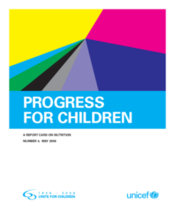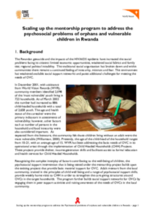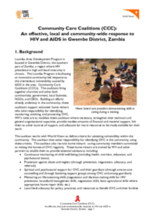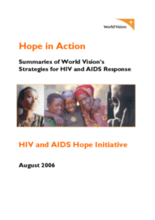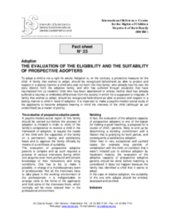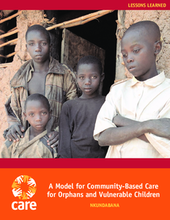Demographic Data
|
Sources: World Bank, UNICEF,UNDP HDR 2015, DHS 2014 |
Displaying 13681 - 13690 of 14347
Guidelines to address the specific needs and rights of indigenous children in the context of child labour. Includes a comprehensive list of follow-up resources.
Evaluates global improvements in nutrition as progress towards achieving the Millenium Development Goals (MDGs). Suggests that the MDGs are attainable only with re-prioritization of efforts to reduce child undernutrition.
Outlines the results of World Vision Rwanda’s mentorship program for children in child-headed households and other OVC. Includes challenges and lessons learned.
Short document outlining the constitution, role, and work of community care coalitions in Gwembe District, Zambia. Includes lessons learned and recommendations.
Summarizes World Vision’s strategies for key areas of HIV/AIDS response.
A short 2-page fact sheet on how to evaluate the suitability of a family that wishes to adopt a child.
A situation analysis of laws, policies, and structures relevant to child protection in Sri Lanka, and a set of recommendations for improving the alternative care system.
One-page flow-chart diagram outlining the purpose of and relationship between assessment, monitoring, and evaluation processes.
A survey of caregivers designed to assess barriers and incentives to fostering in rural Zimbabwe. Suggests that incentives for sustainable orphan care should focus on financial assistance.
A lessons learned document reviewing impacts of a community-based care and mentoring program for child-headed households in Rwanda.


